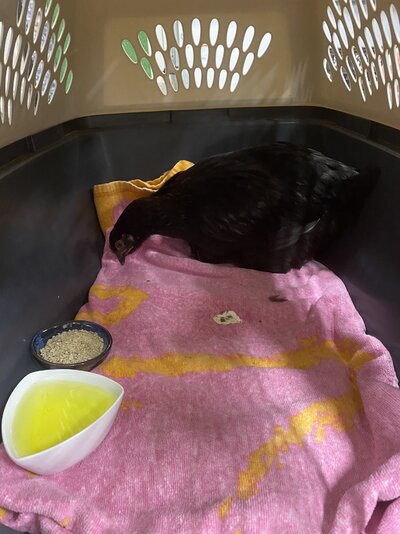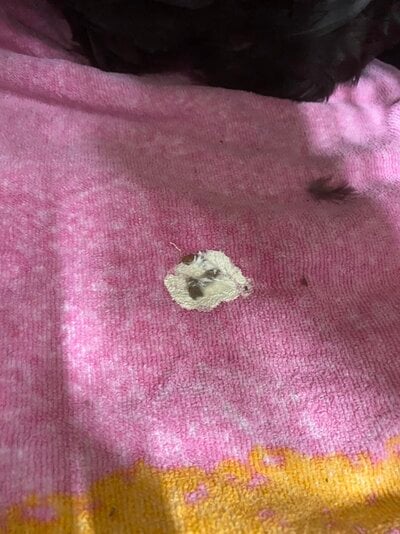Last week I went out to the coop to find my favourite 16 week old chicken down in the coop. She wasn’t able to lift her head, she was limp but breaking normally. The rest of the flock looked fine, and she herself was normal the day before. Tried her on vitamins, in the house for warmth. She would take syringes fluids no food. 24 hours later her breathing became labored and I decided to put her out of her misery. I wondered if something had gotten her as they free range during the day in the yard. Five days later, I found a 10 week old chick with early similar symptoms. She’s having a hard time lifting her head, not moving much. I’ve got a call into the vet, but haven’t heard back which makes me wonder if they forgot to call me back (now it’s after hours). I’m beyond worried about loosing another bird, or worse, my whole flock.
They have access to clean water, there is both 18% grower crumbles and layer pellets in the coop. They get meal worms and scratch for treats, as well as vegetable scraps that haven’t gone bad. We do have three Pekin ducks that they rarely interact with as well.
Any ideas? I’m worried sick.
They have access to clean water, there is both 18% grower crumbles and layer pellets in the coop. They get meal worms and scratch for treats, as well as vegetable scraps that haven’t gone bad. We do have three Pekin ducks that they rarely interact with as well.
Any ideas? I’m worried sick.





